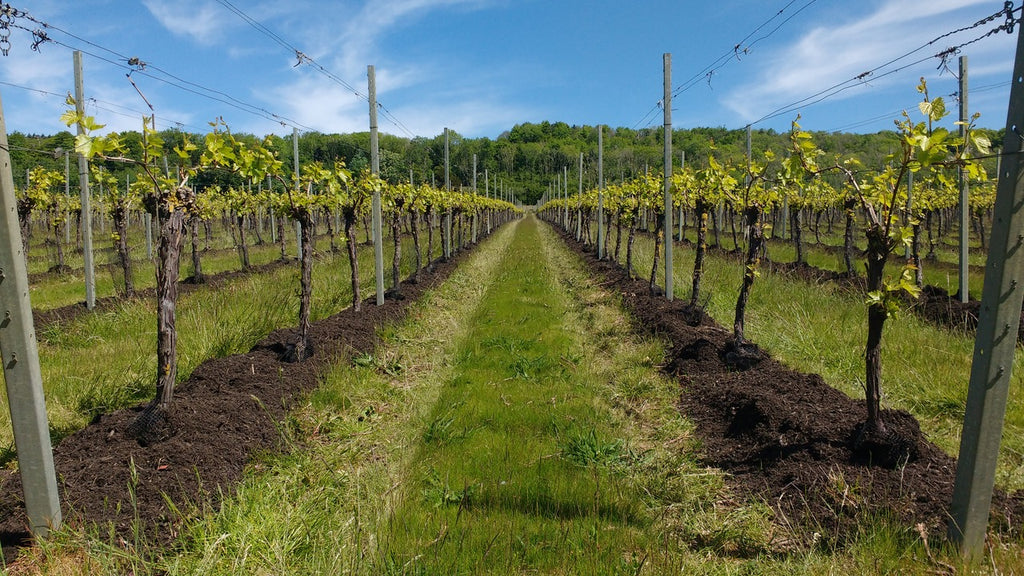
If you’ve ever wondered what becomes of all those grass clippings that go into your green waste garden bin at home - well - some of them end up at Westwell - please thank your lawns from us.
Over time, older vines will have depleted the nutrients in the soil, so it’s important to replace these. We do this using the compost from our local green recycling centre in East Malling, which is about 15 miles from the vineyard.
They take the council green waste, i.e. garden prunings and grass cuttings and turn it into lovely black, crumbly compost.
It’s a simple but effective process. They remove all the big woody bits and then put everything through a massive shredder, before laying it out in long mounds (windrows) outside. The heaps are turned every 10 days or so which increases the microbial activity and creates temperatures of 60 – 70C, effectively killing off weed seeds and disease. The whole process is completed in about 8 – 12 weeks.
The industry is well regulated and the resulting compost has to achieve a British Standard before it can be used.
It’s not the same as the compost you buy from garden centres to grow geraniums in - it should really be described as soil conditioner. The nutrient levels are relatively low and are released slowly over a much longer period of time (we probably won’t see a huge benefit until 2021). The organic matter improves the soil structure and maintains adequate nutrient levels.
Unfortunately, it feeds the weeds too!

Nettle Tea Recipe

Nettle tea. In 3 -4 weeks we’ll have some delicious nitrogen/iron-rich foliar for our vines.
Fill a container with fresh nettles, preferably before they flower. Then top up with water. Leave for 4 weeks and then use the resulting tea diluted down, either as a foliar spray or watered in around the base of the plant. We dilute it down to 1 part Tea to 10 parts water to spray on the vines.





